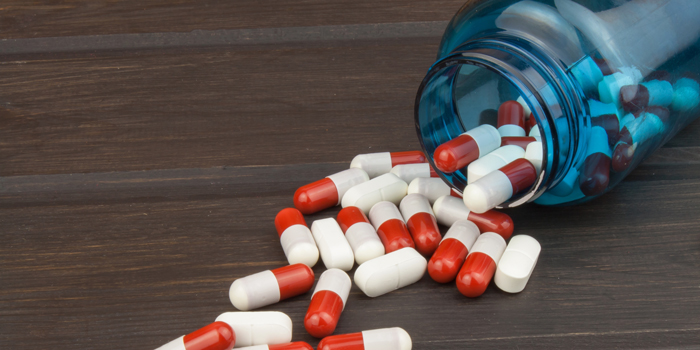
Anabolic steroids are synthetic, or human-made, variations of the male sex hormone testosterone. The proper term for these compounds is anabolic-androgenic steroids. "Anabolic" refers to muscle building, and "androgenic" refers to increased male sex characteristics.
Health care providers can prescribe steroids to treat hormonal issues, such as delayed puberty. Steroids can also treat diseases that cause muscle loss, such as cancer and AIDS. But some athletes and bodybuilders misuse these drugs in an attempt to boost performance or improve their physical appearance.
The majority of people who misuse steroids are male weightlifters in their 20s or 30s. Anabolic steroid misuse is much less common in women. It is difficult to measure steroid misuse in the United States because many national surveys do not measure it. However, use among teens is generally minimal. The 2016 NIDA-funded Monitoring the Future study has shown that past-year misuse of steroids has declined among 8th and 10th graders in recent years, while holding steady for 12th graders.
People who misuse anabolic steroids usually take them orally, inject them into muscles, or apply them to the skin as a gel or cream. These doses may be 10 to 100 times higher than doses prescribed to treat medical conditions.
Commons patterns for misusing steroids include:
- cycling—taking multiple doses for a period of time, stopping for a time, and then restarting
- stacking—combining two or more different steroids and mixing oral and/or injectable types
- pyramiding—slowly increasing the dose or frequency of steroid misuse, reaching a peak amount, and then gradually tapering off to zero
- plateauing—alternating, overlapping, or substituting with another steroid to avoid developing a tolerance
There is no scientific evidence that any of these practices reduce the harmful medical consequences of these drugs.
Anabolic steroids work differently from other drugs of abuse; they do not have the same short-term effects on the brain. The most important difference is that steroids do not directly activate the reward system to cause a “high”; they also do not trigger rapid increases in the brain chemical dopamine, which reinforces most other types of drug taking behavior.
Misuse of anabolic steroids might lead to negative mental effects, such as:
- paranoid (extreme, unreasonable) jealousy
- extreme irritability and aggression (“roid rage”)
- delusions—false beliefs or ideas
- impaired judgment
- mania
Anabolic Steroids and Infectious Diseases
People who inject steroids increase their risk of contracting or transmitting HIV/AIDS or hepatitis.
Aside from mental effects, steroid use commonly causes severe acne. It also causes the body to swell, especially in the hands and feet.
Anabolic steroid misuse might lead to serious, even permanent, health problems such as:
- kidney problems or failure
- liver damage and tumors
- enlarged heart
- high blood pressure
- changes in blood cholesterol
- all of which increase the risk of stroke and heart attack, even in young people
- increased risk of blood clots
Several other effects are gender- and age-specific:
In men:
- shrinking testicles
- decreased sperm count
- baldness
- development of breasts
- increased risk for prostate cancer
In women:
- growth of facial hair or excess body hair
- decreased breast size
- male-pattern baldness
- changes in or stop in the menstrual cycle
- enlarged clitoris
- deepened voice
In teens:
- stunted growth (when high hormone levels from steroids signal to the body to stop bone growth too early)
- stunted height (if teens use steroids before their growth spurt)
- Some of these physical changes, such as shrinking sex organs in men, can add to mental side effects such as mood disorders.
Even though anabolic steroids do not cause the same high as other drugs, they can lead to a substance use disorder. A substance use disorder occurs when a person continues to misuse steroids, even though there are serious consequences for doing so. The most severe form of a substance use disorder is addiction. People might continue to misuse steroids despite physical problems, high costs to buy the drugs, and negative effects on their relationships. These behaviors reflect steroids' addictive potential. Research has further found that some steroid users turn to other drugs, such as opioids, to reduce sleep problems and irritability caused by steroids.
People who misuse steroids might experience withdrawal symptoms when they stop use, including:
- fatigue
- restlessness
- loss of appetite
- sleep problems
- decreased sex drive
- steroid cravings
One of the more serious withdrawal symptoms is depression, which can sometimes lead to suicide attempts.
Some people seeking treatment for anabolic steroid addiction have found a combination of behavioral therapy and medications to be helpful.
In certain cases of addiction, patients have taken medicines to help treat symptoms of withdrawal. For example, health care providers have prescribed antidepressants to treat depression and pain medicines for headaches and muscle and joint pain. Other medicines have been used to help restore the patient's hormonal system.
- Anabolic steroids are synthetic variations of the male sex hormone testosterone.
- Health care providers can prescribe steroids to treat various medical conditions. But some athletes and bodybuilders misuse these drugs to boost performance or improve their physical appearance.
- People who abuse anabolic steroids usually take them orally, inject them into the muscles, or apply them to the skin with a cream or gel.
- People misuse steroids in a variety of doses and schedules.
- Misuse of anabolic steroids might lead to short-term effects, including paranoid jealousy, extreme irritability and aggression, delusions, impaired judgement, and mania.
- Continued steroid misuse can act on some of the same brain pathways and chemicals that are affected by other drugs, including dopamine, serotonin, and opioid systems.
- Anabolic steroid misuse might lead to serious long-term, even permanent, health problems.
- Several other effects are gender- and age-specific.
- People who inject steroids increase their risk of contracting or transmitting HIV/AIDS or hepatitis.
- Even though anabolic steroids do not cause the same high as other drugs, they can lead to addiction.
- Some people seeking treatment for anabolic steroid addiction have found behavioral therapy and medications to be helpful. Medicines can help treat symptoms of withdrawal in some cases.
This publication is available for your use and may be reproduced in its entirety without permission from NIDA. Citation of the source is appreciated, using the following language:
Source: National Institute on Drug Abuse; National Institutes of Health; U.S. Department of Health and Human Services.


